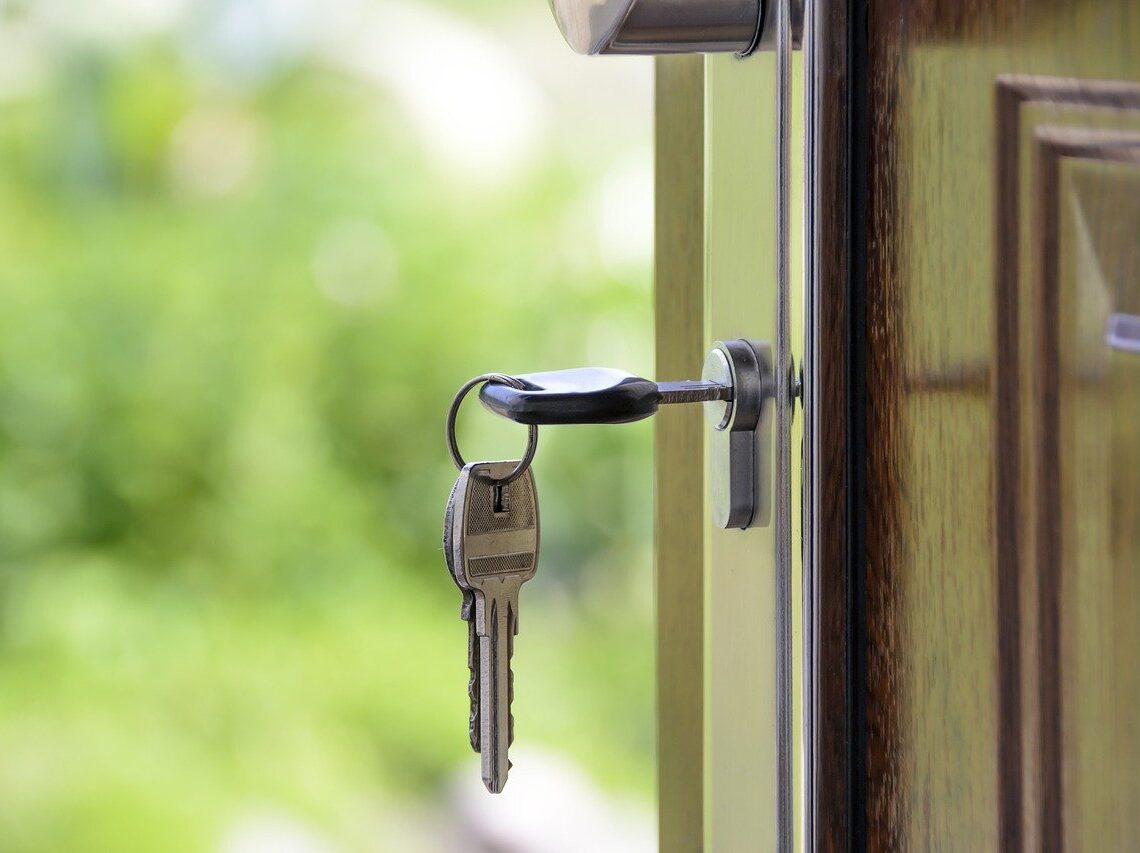What to do when your property isn’t renting

Sometimes, despite your best efforts, your rental property investment does not rent out. You may depend on rental income to pay mortgages, loans, or even for daily expenses, so a vacant house leaves you with a gap in your monthly income. Today we talk about four reasons why your property rents slow or does not rent at all and provide you with tips on how to find a tenant.
Issue No 1: Inefficient marketing
Table of Contents
We cannot stress enough how important the first impression your property leaves on prospective tenants is. Professional photos and videos put your house in the best light possible and make a world of difference when you advertise your home online. So make sure you hire a professional photographer and videographer.
Prospective tenants will decide if your property is a good fit or not in a matter of minutes, if not seconds, after seeing your post, so make sure you also provide accurate and detailed descriptions besides good quality photos. Give your future tenant an impression of how it is to live on the property. Does your house have a great view? Is it situated near a popular landmark or attraction? Is it in an area that stands out for services, or various kinds of activities? Make sure you emphasize these aspects in your description.
Last but not least, your post will generate viewings only if seen by enough prospective applicants. Make sure your house will get the right amount of attention by advertising it on all relevant online platforms.
Issue No 2: Charging too much
Another aspect that you need to evaluate is how your rent compares to the market value. If your property is great and properly advertised, why it still empty? You may charge too much compared to the market rent, and there may be other similar properties out there that rent for less. A higher rent in the past is not an indicator of the current rent level either. Even if you rented the property before for a great price, that is not a guarantee that in a year or two you will be able to ask the same amount. Try to leave aside your own financial calculations and your ideal rent level, compare your property to others on the market, and see where it really stands pricewise. Lowering the rent is your best decision.
Issue No 3: Charging too low
Be careful, though, setting your rent too low may have similar consequences to setting it too high. We know it is a bit counterintuitive but think again. Your property is great, you decide on an aggressive marketing strategy and for a low price point to make sure you attract a qualified tenant as soon as possible. Prospective tenants are likely to start questioning why your property rents for so low compared to the market, and conclude that there may be something wrong with the house. Bottom line, you can go lower than the market rent to rent fast, but not too low, as it will turn prospects suspicious.
Issue No 4: Property condition
If you have selected the right marketing strategy and rent level you will probably get quite an amount of viewings. But if even in these conditions, prospective tenants walk away without applying, then it is time to ask whether there are issues with the property. Are there any obvious repairs needed, such as windows or the front door? Are the walls freshly painted? Is the carpet clean? What about the appliances? Make a checklist and go over it to identify possible issues. You can even ask prospective tenants for feedback after the viewing, which spares you the hassle of trying to figure out alone what is not working and provides you with an immediate point of departure in addressing the issues of the property.
If you want your property to be successful, you have to make it stand out in a crowded market and provide your tenants with an exceptional experience all the way around. Fortunately, the good news is that you can do that without draining your bank account. To help boost the appeal of your rental property investment so you can attract renters, consider these practical, budget-friendly tips.
Solution No 1: Beef Up Security
One of the best things you can do for a healthy ROI with your investment property is to put in a reliable home security system. This will help ensure that your property and tenants stay safe at all times, providing both you and your residents with peace of mind. If you don’t live in the area in which your rental property is located, be sure to go with either a professional monitoring service or a smart security system that lets you monitor the property remotely; there are many top-notch, cost-effective smart security systems on the market.
Solution No 2: Upgrade the Appliances
New appliances can go a long way in boosting the appeal of your property. If your kitchen appliances (e.g., refrigerator, oven, stove, etc.) are out of date, replacing them with stainless steel appliances can enhance the aesthetics and raise the value of the home. Also, consider smart home devices that can make your tenants’ stay more comfortable, such as an automatic washing machine and a tumble dryer.
While many of these items are expensive, you can find great deals that make them affordable. And by visiting sites like Rakuten, you can often pile on the savings for home appliances through extra promotions and cashback opportunities.
It is true that while appliances can boost the rental value of your property, they can also cause headaches and a large hole in your pocket when they break. Washing machines and tumble dryers are particularly sensitive due to excessive use or negligence, and repair costs are usually high. If you decide to provide your tenant with such facilities, make sure you’re buying a sturdy, good-quality appliance that is provided with a generous manufacturer warranty, so that you avoid purchasing a home warranty.
Solution No 3: Freshen the Paint
One of the most budget-friendly ways to spruce up a rental property is to paint the walls. You might be able to do all the painting yourself, meaning you would only need to pay for materials. Rental property management companies such as HomeVault Property Management recommend you opt for a light neutral color such as white, cream, or gray. It will likely satisfy the taste of most tenants, is cost-effective because it needs few, and sometimes even one coat.
Solution No 4: Evaluate the Floors
Floors are a big deal when it comes to investment properties. Although carpet remains at the top of the preferences of homeowners, it is less than ideal for rental properties, because it will always accumulate stains and odors and is extremely hard to keep clean and pleasant looking. Considering that about 68% of US households own pets, chances are that your tenant is also a pet owner, your carpet will thus deteriorate faster, and it’ll need complete replacement once in a few years.
If you want your property to stand out and you are willing to spend more, consider going for hardwoods. With hardwood floors, you get attractiveness, durability, and easy maintenance. If you already have hardwood floors and they just need a little TLC, consider learning how to refinish them. Yet hardwood is not for every house or every budget. Besides the high acquisition price, it is also expensive to install, as you’ll need well-qualified and equipped technicians to maneuver it. It may be a good idea to install hardwood flooring if your property is a higher-end rental.
If you are in search of a cheaper but almost as sturdy and pleasant-looking alternative to hardwood flooring, you can confidently choose laminate. Good quality laminate flooring imitates in great detail the intricate details on the surface of natural wood, ceramic tiles, and other traditional flooring materials but comes with a lower price tag and needs considerably less expertise to install. With a bit of training, you could install it yourself!
If your rental is in the lower-end segment, it is probably best to choose luxury vinyl flooring, which is highly durable, cost-effective, and resembles closely natural wood flooring. As is the case with laminate, you need minimal expertise to install it, and you can save a lot of money without overlooking the appearance and comfort of your rental.
Solution No 5: Hire a Property Manager
Once you’ve boosted the appeal of your rental investment, you’re left with managing it. You need to make sure not only that the investment paid off but that it will need as little re-investment as possible for the time to come. But managing a property is no easy task, and when you own multiple homes, it can be downright overwhelming. You may easily overlook important maintenance work at your rental properties especially when tenants change, which can cost you longer renting times, and a loss of rental income.
That’s why hiring a property manager can be so beneficial. A property manager can handle anything from maintenance and repairs to landscaping and will use their expertise to maintain the appeal of your property in the long run. The time, money, and stress you save long-term will far outweigh the costs you pay upfront.
Let’s conclude what you need to consider to make your rental property investment stand out among the competition and yield a healthy return:
- add a home security system
- update the appliances
- paint the walls
- get new floors or freshen up existing ones
- hire a property manager
Putting effort into boosting the appeal of your property can pay off big by attracting more qualified tenants that will stay for longer and take care of your property as if it were their own!
Need to know more details about managing your property? Drop us a line, we’re happy to help!
Credits: Photo by PhotoMIX-Company from Pixabay.



Leave a Reply